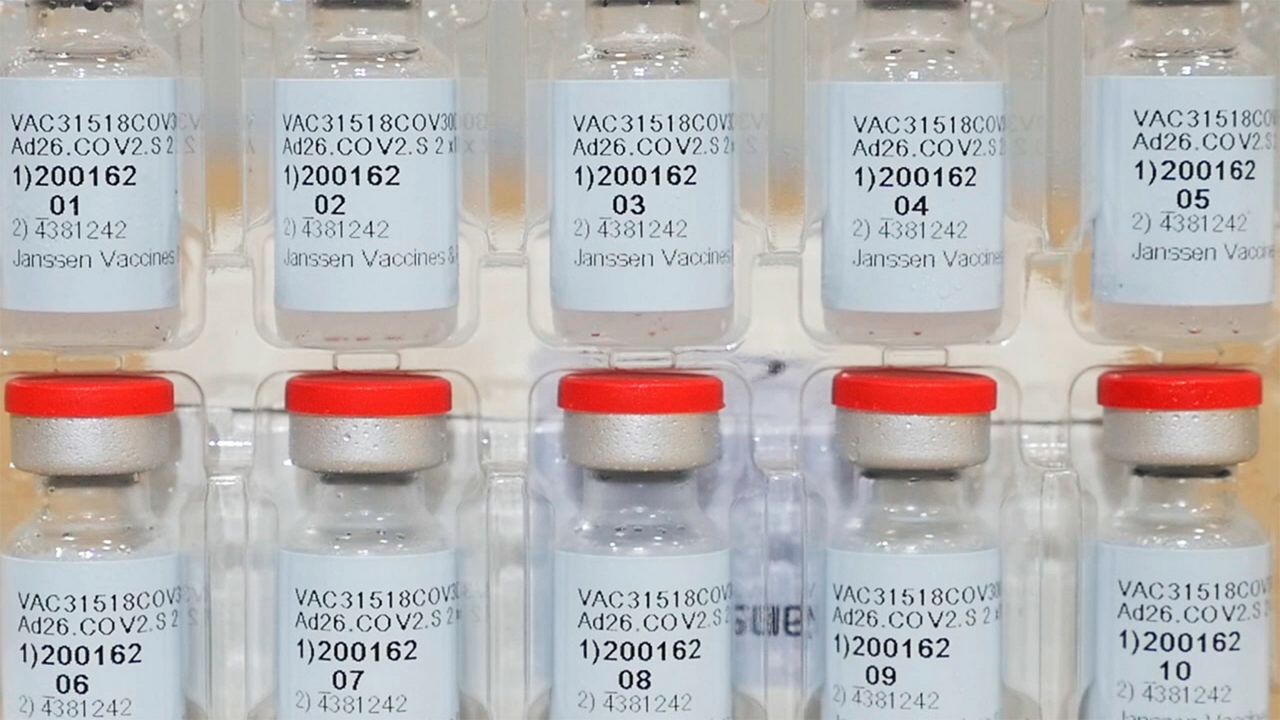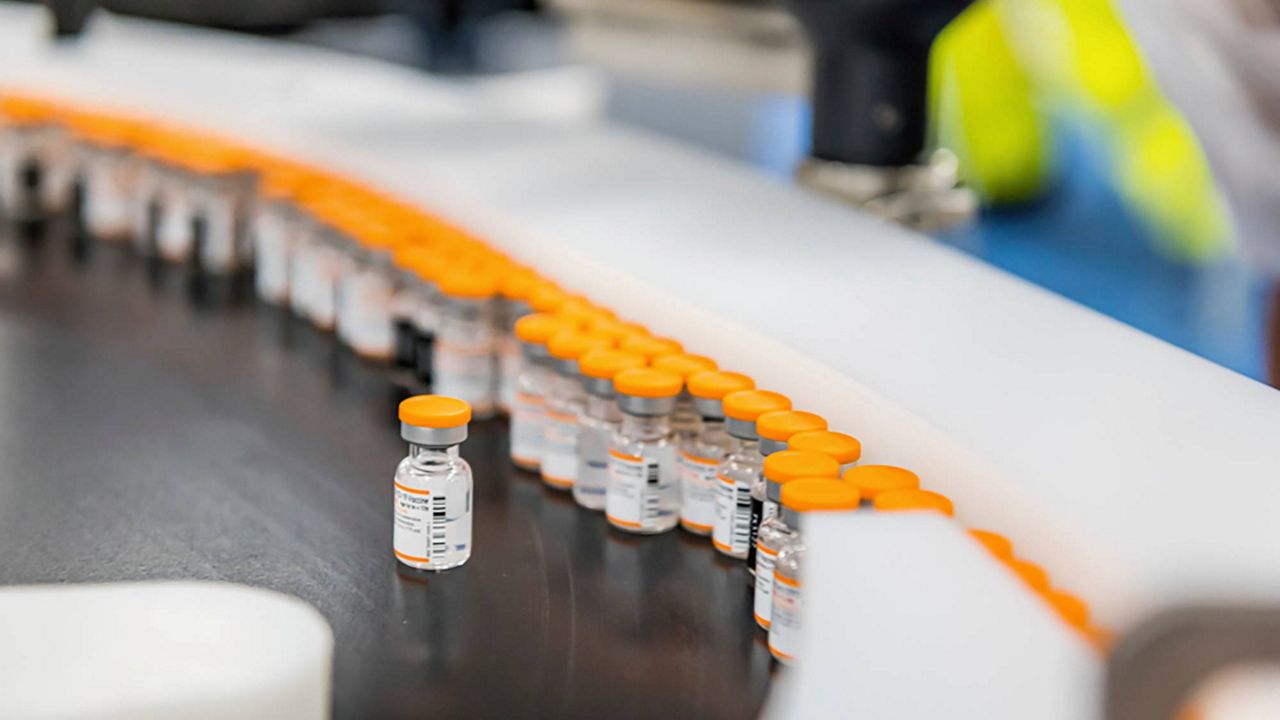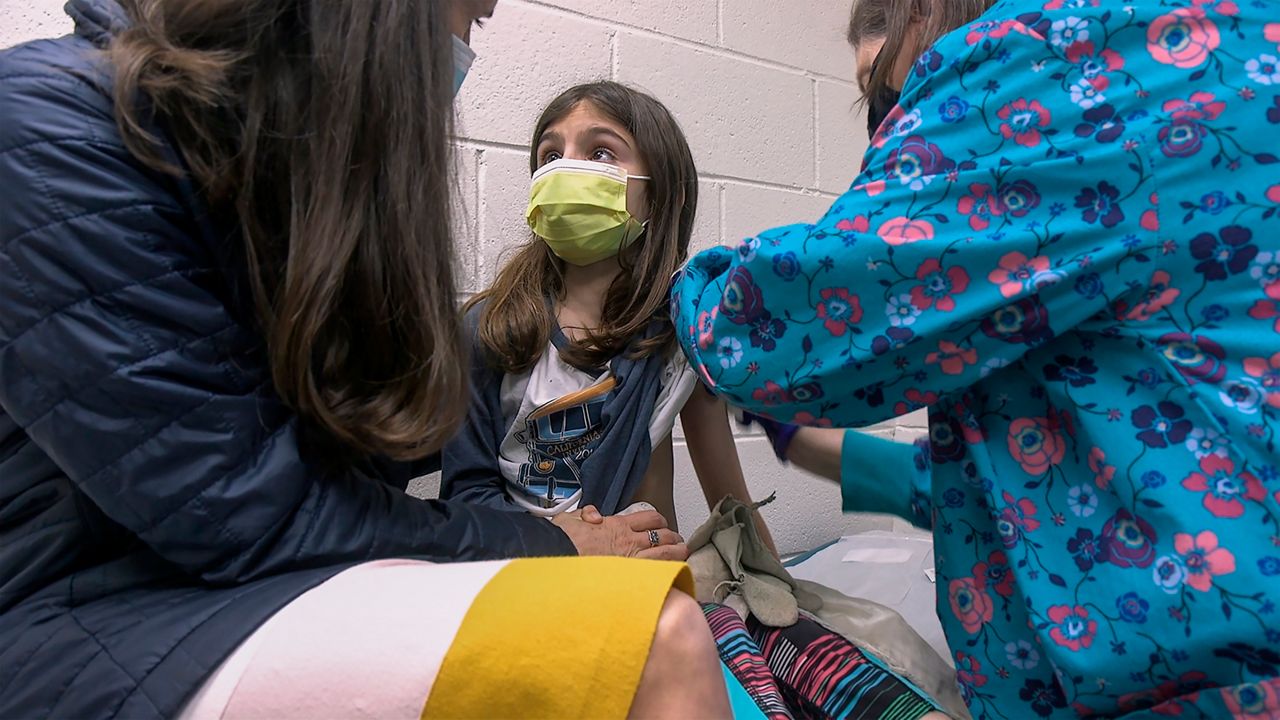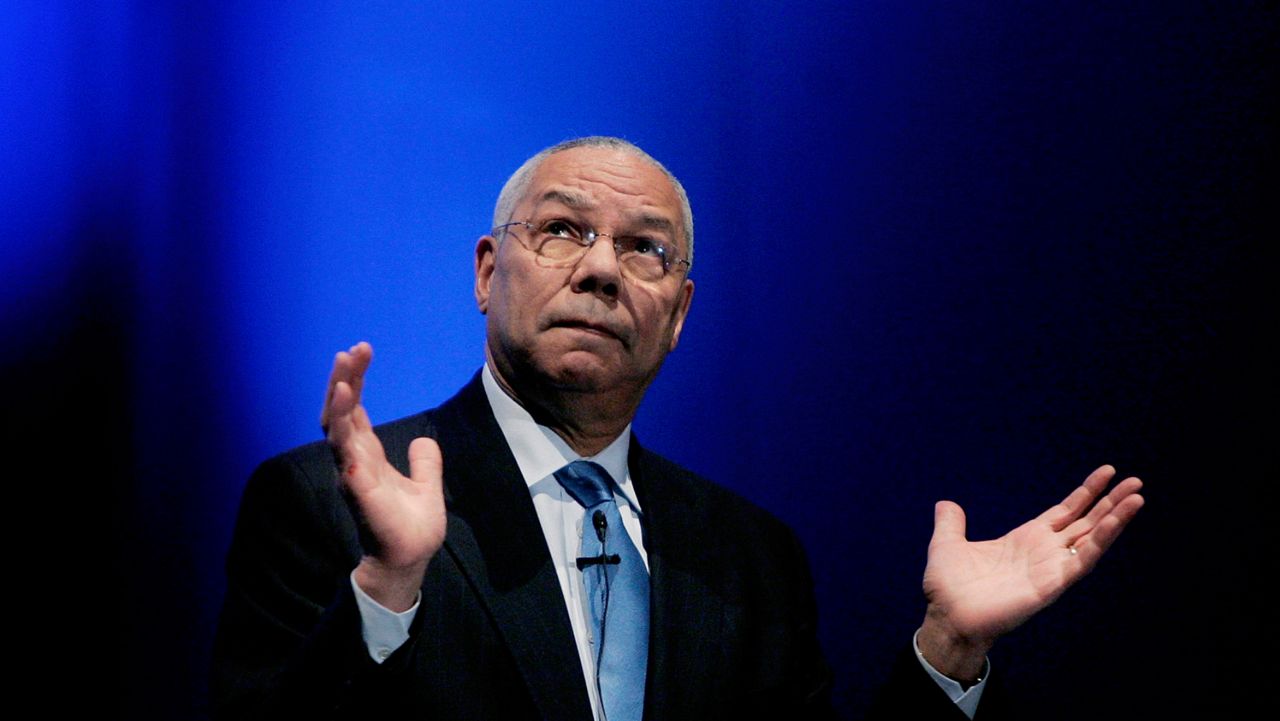AstraZeneca is searching for a new manufacturer for its COVID-19 vaccine, part of the fallout after a Baltimore plant spoiled 15 million doses of Johnson & Johnson’s vaccine.
What You Need To Know
- AstraZeneca is searching for a new manufacturer for its COVID-19 vaccine, part of the fallout after a Baltimore plant spoiled 15 million doses of Johnson & Johnson’s vaccine
- Both vaccines were being manufactured by Emergent BioSolutions, where workers at the plant reportedly mixed up ingredients of the two vaccines
- Over the weekend, the Department of Health and Human Services put Johnson & Johnson in control of the facility
- To prevent against any future cross contamination, the Johnson & Johnson vaccine will soon be the only COVID-19 vaccine produced there
Both vaccines were being manufactured by Emergent BioSolutions, a major government contractor. Workers at the plant reportedly mixed up ingredients of the two vaccines.
Over the weekend, the Department of Health and Human Services put Johnson & Johnson in control of the facility. To prevent against any future cross contamination, the Johnson & Johnson vaccine will soon be the only COVID-19 vaccine produced there, Andy Slavitt, White House senior adviser for COVID-19 response, confirmed Monday.
HHS applauded that move, Slavitt said. He added that the agency, Johnson & Johnson and AstraZeneca made the decision “in complete collaboration.”
Federal officials have stressed that no contaminated vaccines left the plant. Despite the setback, Johnson & Johnson said it still expects to deliver nearly 100 million doses to the federal government by the end of May. The mixup also is not expected to prevent the Biden administration from meeting its goal of having enough vaccine doses available for all American adults by the end of May.
Slavitt said the events are no reflection of the safety of the AstraZeneca vaccine, which has not yet come before the Food and Drug Administration for possible emergency use authorization.
“They are working on where they would continue to move their production, but don't believe that there is any impact on their production schedule based upon what's happened,” Slavitt said.
Former FDA Commissioner Dr. Scott Gottlieb told CBS’ “Face the Nation” on Sunday that he believes one facility should never have been producing two different viral vector vaccines, which use a modified version of a virus to carry genetic material to cells.
“Their genomic material transfers easily,” he said. “We saw this with the CDC in terms of their failed rollout of their diagnostic tests because they were manipulating too many viruses in one facility and there was some cross contamination.
“I think what this underscores is we just don't have a lot of excess biomanufacturing capacity in this country,” Gottlieb added.
In a statement, Johnson & Johnson said it is “assuming full responsibility” for manufacturing its vaccine at the Emergent plant, installing its own leadership team there, and increasing manufacturing, quality and technical operations personnel.
“The Company is committed to continuing its extensive collaborations and partnerships with governments, health authorities and other companies to help end this pandemic,” Johnson & Johnson said.
Emergent noted in a statement that it continues to own the Baltimore facility and said it is receiving an additional $23 million from the Biomedical Advanced Research and Development Authority, part of HHS, to buy manufacturing equipment for the potential expansion of Johnson & Johnson vaccine production.
“Emergent’s top priority continues to be the strengthening of the supply chain for Johnson & Johnson’s vitally needed COVID-19 vaccine,” said Robert Kramer, Emergent’s president and CEO. “We have been working closely with Johnson & Johnson and welcome the additional oversight and support at our Bayview facility, including increased and final sign-off of manufacturing of its bulk drug substance and supervision and direction of all Johnson & Johnson critical manufacturing operations.”
Last month, President Joe Biden announced an agreement in which Johnson & Johnson’s vaccine also is being produced by rival company Merck.
AstraZeneca said it is working with the Biden administration to find a new site to produce its vaccine.
“AstraZeneca and the US Government continue to work closely together to support agreed upon plans for the development, production and full delivery of the vaccine,” the Anglo-Swedish company said in a statement.
The Emergent problems are the latest complication involving the AstraZeneca vaccine, which is used widely across Europe and in other countries, in recent. More than a dozen countries, including Germany, Italy and France, temporarily stopped administering the shots last month after at least 37 people who were vaccinated experienced blood clots, with at least four dying. The countries resumed vaccinations after the European Medicines Agency, the E.U.'s medical regulator, declared the Oxford-AstraZeneca vaccine to be “safe and effective,” but it added that it "cannot rule out definitely a link" between blood clots and the shots.
Canada last week suspended the use of the Oxford-AstraZeneca coronavirus vaccine for people under age 55 amid new data from Europe that suggests the risk of blood clots is now potentially as high as one in 100,000, much higher than the one in one million risk believed before.
Also last month, U.S. officials accused the company of using outdated and potentially misleading data when it reported its vaccine was 79% effective against symptomatic COVID-19. AstraZeneca acknowledged the numbers were from an interim analysis that ran through Feb. 17. The company then released revised data showing 76% effectiveness.
The Associated Press contributed to this report.
Ryan Chatelain - Digital Media Producer
Ryan Chatelain is a national news digital content producer for Spectrum News and is based in New York City. He has previously covered both news and sports for WFAN Sports Radio, CBS New York, Newsday, amNewYork and The Courier in his home state of Louisiana.








